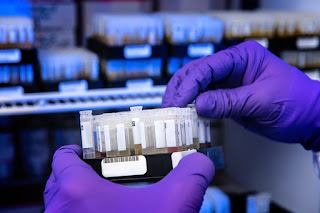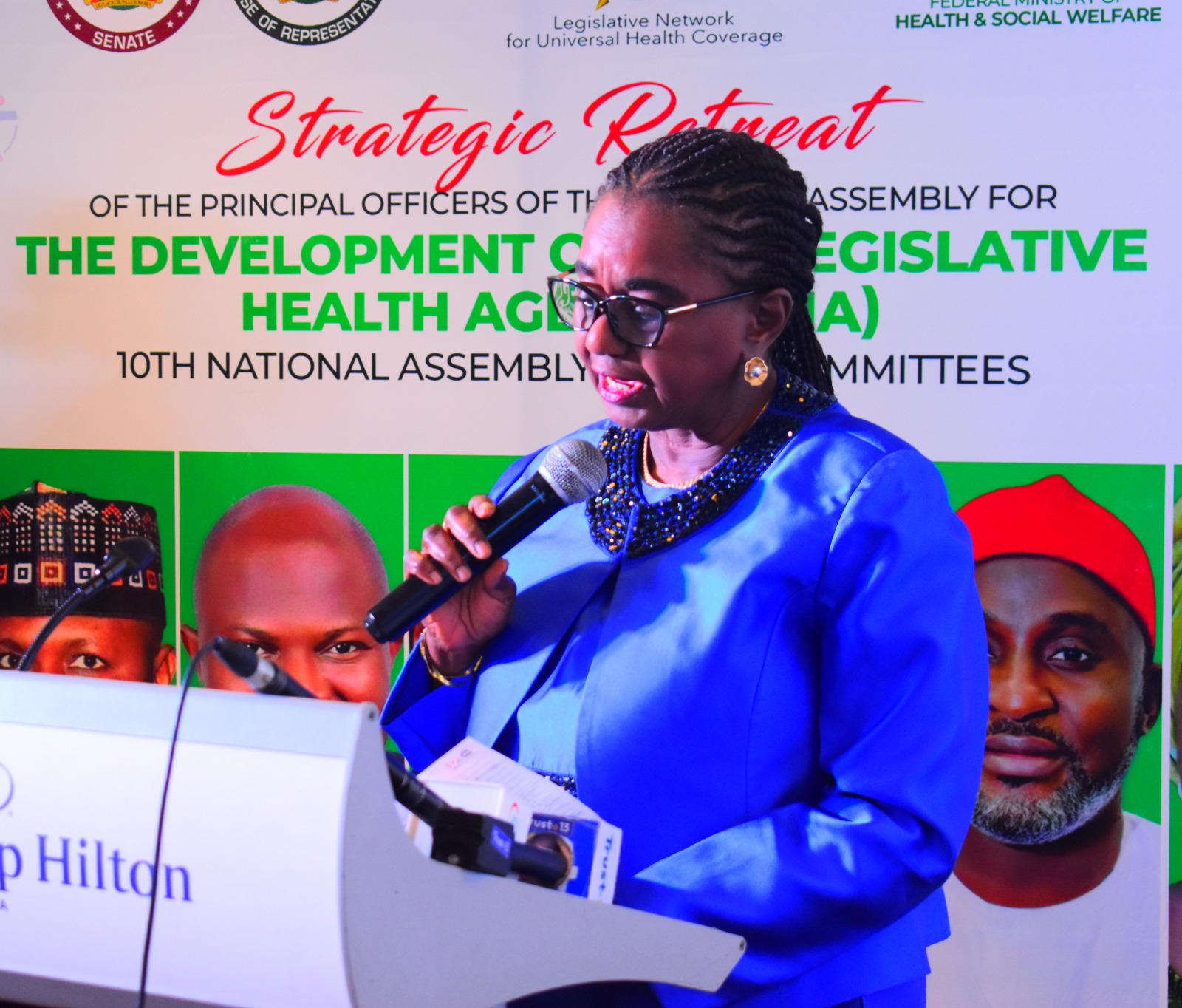Health
All You Need To Know About The Same Day PCR Test In London

The COVID-19 pandemic has put the world into a spiral, prompting the healthcare industry to respond by developing and rapidly adopting infection-detection technologies. Many of these tests aid doctors and researchers in precisely identifying the virus that causes COVID-19, severe acute respiratory syndrome coronavirus 2 (SARS-CoV-2).
These tests have proved critical in identifying and locating cases of infection and disease-related morbidity and mortality—the usage of same day PCR London can aid in the detection of viruses with quick results. Let’s take a closer look at it.
What Is A COVID-19 PCR Test?
The acronym PCR stands for a polymerase chain reaction. It looks for genetic information from a particular organism, like a virus. If you’ve had a virus at the beginning of the trial, the test may identify its existence. Even if you’re no longer sick, the examination may reveal remnants of the virus. PCR London is required for all travellers departing and arriving in London.
This test examines your upper respiratory samples for the genetic code (ribonucleic acid or RNA) of SARS-CoV-2, the infectious COVID-19. Using the same day PCR London approach, tiny amounts of RNA from specimens are magnified into DNAs repeated until SARS-CoV-2 is identified.
The same day PCR test in London was the standard method for detecting COVID-19 since its release in February 2020.Some changes have been made to the test in order to make it more effective and accurate since this point.

Three Steps On Taking A Same Day PCR Test In London
The COVID-19 PCR test in London consists of three key steps:
A swab is used to gather respiratory debris discovered in your nose by a healthcare expert. A swab is a long, elastic tool with a smooth end that enters your nose. Nasal swabs, which gather a sample directly within your nostrils, and nasopharyngeal swabs, which collect a specimen farther into the nasal cavity, are two kinds of nose swabs.
Gathering samples for the COVID-19 same day PCR London test may be done with any type of swab. The swab is packed in a tube and shipped to a facility upon picking. When a research professional obtains a sample, they separate (extract) the genetic material from the other of the sample’s contents.
The PCR process, which involves specific chemicals a, is next performed. The test tube’s quantity of specified genetic information grows and changes. After several trials, the test tube contains millions of copies of a tiny piece of the SARS-CoV-2 virus’s genetic information.

Who Need To Get Tested?
Travellers are required to get the same day PCR London screening. If you experience any of the following symptoms, you may need to complete a covid test to ensure that you are free from the virus.
- Fever or chills are two symptoms of a fever
- Cold
- Breathing difficulties or shortness of breath
- Fatigue
- Aches in the muscles or throughout the body
- Migraine
- Loss of smell and taste
- Sore throat
- Congestion or a runny nose
- Vomiting or nausea
- Diarrhea
Health
FG Launches Initiative To Combat Malnutrition Among Children
The Federal Government has begun a scheme to battle malnutrition in children.
Tagged, “Nutrition 774 Initiative”, the programme was unveiled by Vice President Kashim Shettima as it falls within a framework for the Federal Government’s comprehensive vision for a nationwide nutrition programme to address malnutrition and food insecurity in Nigeria.
The proposed programme, “Nutrition 774 Initiative,” aims to improve nutritional outcomes across all 774 local government areas (LGAs) in the country.
Speaking yesterday during a roundtable with development partners at the Presidential Villa, Abuja, VP Shettima said the initiative aligns with President Bola Ahmed Tinubu’s broader focus on food security and availability across Nigeria.”The priority with which His Excellency, President Bola Ahmed Tinubu, has pursued food availability has gone hand-in-hand with our commitment to eradicating malnutrition.
“Our aspiration as a nation goes beyond the mere abundance of food in our barns and warehouses. We cannot claim victory unless there is certainty that each household across Nigeria has access to the preferred and prescribed diets essential for a healthy life,” the vice president stated.
It would be recalled that the 144th meeting of the National Economic Council (NEC) had in September endorsed the Nutrition 774 programme as a primary platform for combating malnutrition within Nigerian communities.
The council encouraged development partners to provide financial and technical assistance to support this initiative.
Health
Banigo Canvasses E-Health Devices For Nigeria’s Healthcare Dev

The importance of e-Health devices and digital health solutions in improving Nigeria’s healthcare system has been emphasised by Senator Ipalibo Harry Banigo, Chairman of the Senate Committee on Health, Secondary and Tertiary.
She also stressed that health is a multilayered activity and a multisectoral collaboration that requires legislators to work together to provide legislation, implement policies, and track funds effectively.
Banigo, who represents Rivers West Senatorial District in the National Assembly, made these remarks at the 5th Annual Legislative Summit on Health in Abuja, themed “Improving Legislative Stewardship and Accountability for Universal Health Coverage.”
She highlighted the potential of eHealth devices, especially given Nigeria’s large population and limited healthcare professionals.
“We can develop platforms that can be accessed through simple phones, even in remote villages, to provide health education and interventions,” she said.
“We are not talking about highfalutin things; we are talking about what will impact communities at the grassroots level, particularly pro-poor initiatives that will benefit vulnerable populations.”
Banigo also emphasized the importance of accountability and effective care, encouraging legislators to share knowledge, engage in peer reviews, and exchange information to achieve better health outcomes.
She recalled the cholera outbreak, where basic health education and interventions could have been delivered via mobile phones, preventing preventable deaths.
The 5th Annual Legislative Summit on Health brought together federal and state legislators, the Coordinating Minister of Health and Social Welfare, Prof. Muhammad Pate, the World Health Organisation’s representative in Nigeria, Dr. Walter Mulombo, and other dignitaries.
Health
WHO Targets One Billion For Better Health
The World Health Organisation (WHO) says it is targeting 1 billion more people to enjoy better health and well-being will by 2025.
The plan it said is driven primarily by improvements in air quality and access to water, sanitation and hygiene measures.
Meanwhile, the body has listed it achievements in a Report of 2023, the most comprehensive to date.
The report showcases achievements of key public health milestones by the world health apex agency even amid greater global humanitarian health needs driven by conflict, climate change and disease outbreaks.
The report is expected to be released ahead of the 2024 Seventy-seventh World Health Assembly, which runs from 27 May, 1st June, 2024.
WHO revised Programme Budget for 2022–2023 was US$ 6726.1 million, incorporating lessons learned from the pandemic response and addressing emerging health priorities.
With 96percent of WHO country offices providing 174 country reports on achievements, the report shows some progress towards 46 targets and highlights some challenges.
“The world is off track to reach most of the triple billion targets and the health-related Sustainable Development Goals,” said Dr. Tedros Adhanom Ghebreyesus, WHO Director-General. “However, with concrete and concerted action to accelerate progress, we could still achieve a substantial subset of them. Our goal is to invest even more resources where they matter most at the country level while ensuring sustainable and flexible financing to support our mission.”
The report shows advancement in several key areas, including healthier populations, Universal Health Coverage (UHC), and health emergencies protection.
Related to healthier populations, the current trajectory indicates the target of 1 billion more people enjoying better health and well-being will likely be met by 2025, driven primarily by improvements in air quality and access to water, sanitation and hygiene measures.
In terms of UHC, 30percent of countries are moving ahead in coverage of essential health services and providing financial protection. This is largely due to increased HIV service coverage.
Regarding emergencies protection, though the coverage of vaccinations for high-priority pathogens shows improvement relative to the COVID-19 pandemic-related disruptions in 2020–2021, it has not yet returned to pre-pandemic levels.
The Pandemic Fund’s first disbursements totaled US$ 338 million in 2023, supporting 37 countries to fund the initial response to acute events and scale up life-saving health operations in protracted crises. WHO continues to work with countries and partners to enhance genomic sequencing capabilities and strengthen laboratory and surveillance systems worldwide with capacity increased by 62percent for SARS-CoV-2 between February 2021 and December 2023.
It said one of the achievements is the world’s first malaria vaccine, RTS,S/AS01 administered to more than two million children in Ghana, Kenya, and Malawi during the biennium, reducing mortality by 13% among children eligible for vaccination. WHO’s prequalification of a second vaccine, R21/Matrix-M, is expected to further boost malaria control efforts.
The first-ever all-oral treatment regimens for multi-drug-resistant tuberculosis were made available in 2022, allowing the highest number of people with tuberculosis to get treatment since monitoring began almost 30 years ago.
-

 News5 days ago
News5 days agoHYPREP Moves To Complete Ongoing Projects This Year
-
Women20 hours ago
The Christian Teaching Mother (II)
-
Politics19 hours ago
Keyamo Hails Tinubu Over Oborevwori’s Defection To APC
-
Rivers5 days ago
Don Urges Govt To Be Impartial In Tackling Crisis
-

 Politics5 days ago
Politics5 days agoEaster: Ex-Federal Lawmaker Urges Reflection, Unity, Constitutionality
-
News20 hours ago
FG Targets N13.8 bn Data Protection Revenue In 2025
-

 News18 hours ago
News18 hours agoTinubu Orders Security Chiefs To Restore Peace In Plateau, Benue, Borno
-

 News5 days ago
News5 days agoDeath toll rises to 56 in Benue attacks

